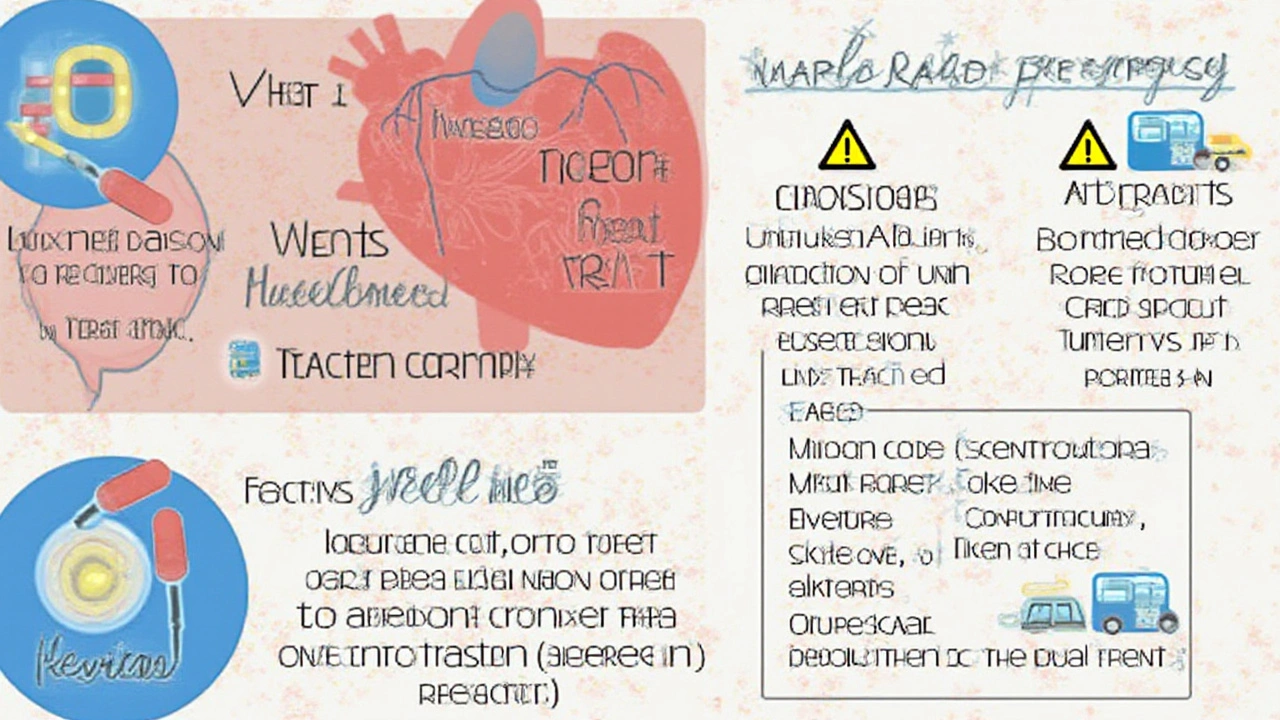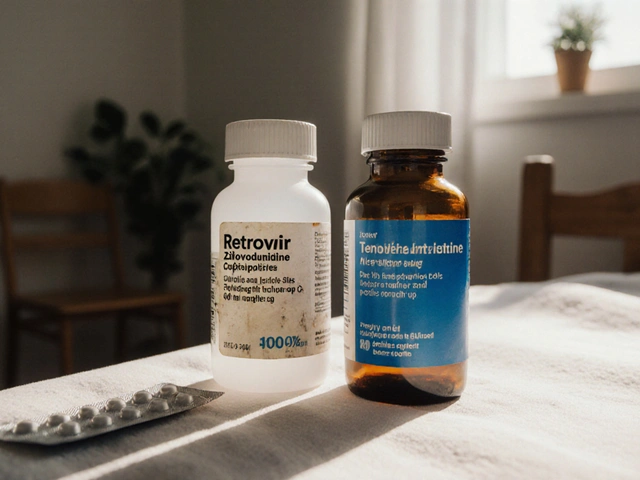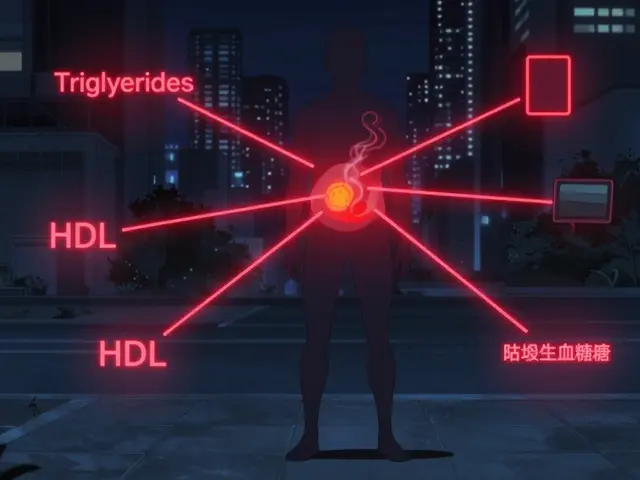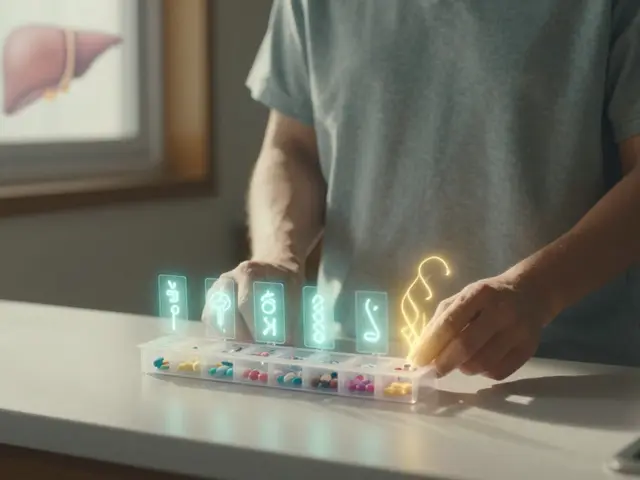Picture this: you’re sitting at home and your heart suddenly skips a beat—literally. It’s not just nerves or too much coffee. For many, it’s a heart arrhythmia. Cordarone, known generically as amiodarone, is often the last thing standing between a dangerous heartbeat and disaster. This med isn’t taken lightly—a fact your doctor will probably stress more than once. But what is Cordarone, and why does it demand such respect and caution? Let’s break it down, one heartbeat at a time.
What is Cordarone and Who Needs It?
Cordarone is a heavy hitter in the world of heart meds. Developed in the 1960s and approved in the U.S. in the 1980s, it’s used to treat irregular heart rhythms, aka arrhythmias. If your heart tends to flutter, skip, or shoot off into a wild drum solo when it shouldn’t, Cordarone might be in your future. Specifically, it’s reserved for the more dangerous kinds of arrhythmias—ventricular tachycardia and ventricular fibrillation, two real troublemakers that can lead to cardiac arrest if not handled quickly.
Most people wind up on Cordarone only after other meds fizzle out. Doctors don’t reach for it first, and that’s because it walks a fine line between hero and troublemaker itself. But for patients who absolutely need their heart rhythm nailed down, Cordarone can change everything. Case in point: a 2019 review from the American College of Cardiology showed it’s still the top choice when other drugs fail to rein in life-threatening ventricular arrhythmias.
But it’s not just for emergencies. Sometimes, folks with atrial fibrillation—another weird rhythm, though less deadly—use it under careful doctor supervision. The real trick is knowing if it’s the right fit. A lot goes into that call: age, heart health, and even lung and thyroid status. It’s not for anyone who values simplicity: Cordarone demands commitment and a watchful eye.
How Cordarone Works Inside the Body
Think of Cordarone as an electrician, rewiring the chaos inside your heart. Normally, the heart’s rhythm is run by precise electrical signals. In arrhythmias, wires cross, signals mix, and the beat goes off the rails. Cordarone steps in and blocks certain electrical signals that can spark these out-of-control rhythms. It slows down nerve activity in the heart, helping you keep a steady pace, no matter what the day throws your way.
This isn’t a quick fix, though. Cordarone has a long half-life—which is science speak for "it sticks around." Some traces can linger for months after you stop. In practice, this means you won’t need to pop a pill every few hours. Most take it once or twice daily, and any missed dose doesn’t cause an instant crash. Yet, that long life in your system also means side effects might show up later, even if you feel fine for weeks. That’s why regular check-ins and labs are a must.
Cordarone isn’t picky—it acts all over. Besides the heart, it can touch your lungs, liver, thyroid, eyes, and skin. That’s unusual for a heart med. These broad effects mean it’s extremely effective at stabilizing rhythms, but the flipside is obvious: more systems, more possible trouble. For some, even low doses can cause fatigue, photosensitivity (sudden aversion to sunlight), or a blue-gray tint on the skin. If you see body changes, especially breathlessness or vision issues, your doctor wants to know immediately.

How to Take Cordarone Safely
If you’ve ever seen someone juggling flaming torches while riding a unicycle, you get the idea of what it’s like taking Cordarone. The rewards are real, but so are the risks. First, always swallow this med with food and a full glass of water. Some folks report an upset stomach, especially in the beginning, and food makes the process gentler. Don’t take it with grapefruit or grapefruit juice—the interaction isn’t just hype. Grapefruit can jack up levels of Cordarone in your blood, raising side effect risks dramatically.
Most people start on a higher dose for a week or two, then drop down to a maintenance dose. It’s your doctor’s way of getting the med into your system quickly, putting out heart "fires," and then coasting you on a safer, smaller level for the long haul. The phase-in period is not the time to experiment or miss a dose, so set those phone alarms.
Routine lab tests are your new best friend. Cordarone can sneakily affect your liver, thyroid, and lungs. Blood work, chest X-rays, and even eye exams are key to catching problems early. If you notice cough, breathlessness that gets worse, blurred vision, or yellowing skin, don’t play the tough guy—report it fast. People sometimes downplay little changes, blaming age or stress, but Cordarone demands full attention because issues can get serious quickly.
One odd tip: pack sunscreen. Up to 75% of users get ultra-sensitive to sun. What used to be a healthy glow can now mean a nasty, long-lasting rash. Now’s a good time to invest in that oversized hat you always joked about wearing.
Risks and Side Effects You Need to Know
No sense sugarcoating: Cordarone’s reputation comes with baggage. The most common complaints are fatigue, tremor, and sun sensitivity. But there’s more. It can cause rare—but severe—lung damage. A study from the Lancet documented that about 5% of Cordarone users eventually show signs of lung inflammation, which can turn life-threatening if missed. That’s why doctors keep such a close eye with repeat X-rays and breathing checks.
Then there’s thyroid mayhem. Cordarone is packed with iodine, more than most meds have any business containing. For about 10% of users, this overload knocks the thyroid out of whack—pushing it too high or too low. The symptoms aren’t always obvious—weight swings, mood changes, or vague fatigue—but a simple lab test will catch it early.
Liver trouble is rare but possible. Yellow skin, stomach pain, dark urine? Time to call the doctor. Also, you might develop bluish-gray skin if you’re fair, especially with sun exposure. For some, vision gets blurry or halos appear around lights—signs of corneal deposits, which aren’t always bad but demand a check. On the plus side, regular monitoring catches most problems before they get out of hand.
One less-known reaction: Cordarone can make your heart go too slow. Some patients flip from one extreme—rapid heartbeats—to the other, feeling faint or dizzy. That’s a quick call to the doc. The med also interacts with dozens of common drugs, from blood thinners (like warfarin) to cholesterol pills. If you’re adding a new prescription or even an herbal supplement, get a pharmacy review before mixing it in.

Tips for Living Well with Cordarone
Life on Cordarone isn’t all gloom and doom. Plenty of people get years of stable, regular heart rhythms from it. The trick is being proactive instead of reactive. Simple moves—like using sunscreen daily, wearing sunglasses outdoors, and keeping a symptom diary—go further than most people think. If you notice changed energy, cough, or skin color, jot it down. Those little notes can help your doctor connect the dots before things get out of hand.
Keep an updated med list—on paper, your phone, or with a family member. Cordarone can clash with all sorts of meds, so any new prescription deserves a quick check-in with your pharmacist. Even common cold medicines or antibiotics can swing your heart rhythm, so when in doubt, ask. Pharmacies aren’t just pill counters—they’re a secret weapon for anyone on complicated drug regimens.
Never stop Cordarone suddenly unless your doctor directs it. Because it hangs out in your system, quitting abruptly can leave you unprotected—and arrhythmias can come roaring back worse than before. Tapering is the word of the day if you’re done with it. Missed a dose? Take it as soon as you remember, unless it’s almost time for the next one. Don’t double up. Simple, but plenty of people forget and double down in panic—not necessary with this drug.
And don’t sidestep follow-up visits. Those appointments feel like overkill at times, but they’re where the subtle problems get found and fixed. Today, wearable ECG monitors and home kits let you (and your doc) keep real-time tabs without constant trips across town. Some insurance even covers home labs and remote check-ins.
A final bit of reality: Cordarone isn’t for everyone, but for those who need it, it’s often a life saver. Partner up with your health team, listen to your body, and don’t let the risk talk scare you away from asking hard questions. Medicine works best when you’re right at the center of it—heart, mind, and all. Cordarone may not be a perfect drug, but with know-how and vigilance, it can tilt the odds in your favor.









Comments (9)
Marlene Schanz
July 17, 2025 AT 16:06 PMThanks for sharing this straightforward guide on Cordarone. It’s really essential to understand not just the benefits but also the risks when dealing with heart meds like this. From what I know, Cordarone (amiodarone) can be quite effective for managing irregular heartbeats, but the side effects can be serious enough that you want to keep a close eye on things.
One tip I’d add is that patients should definitely get regular blood tests and eye exams because toxicity can affect the liver and eyes over time. Plus, it interacts with so many other medications that it’s pretty critical to inform your doctor about every pill you’re taking.
Also, while the post covers safety tips well, it might be worth mentioning the importance of lifestyle adjustments alongside medication – like avoiding grapefruit, which can mess with how the drug works. Anyone here had personal experiences with Cordarone side effects or monitoring routines?
Matthew Ulvik
July 20, 2025 AT 10:26 AMGreat overview! :) I’ve seen a lot of confusion about Cordarone, so straightforward info like this helps.
One thing I always tell people is that while it helps with irregular heart rhythms, you really gotta be patient because it can take weeks or even months before you see the full effect.
Also important is to have an open line with your doc. If you ever experience things like shortness of breath, severe dizziness, or vision problems, don’t brush it off! These can be signs of something serious.
Does anyone else find this drug changes their energy levels drastically? That part’s been tough for some friends I know.
Brenda Martinez
July 22, 2025 AT 04:06 AMSeriously, people need to stop acting like Cordarone is some miracle safe drug! It’s borderline dangerous if you don’t respect the side effects.
I’ve known more than one person get thyroid issues and lung complications because their doctors weren’t vigilant enough. This drug requires CONSTANT monitoring, not just a lazy check-up here and there.
And don’t even get me started on how many people either lie about what other meds they’re on or don’t realize what interactions might kill them. It’s not a joke—it’s about life or death here.
If you’re on Cordarone, fight to be informed. Demand tests and don’t settle for feeling “just okay.” This drug isn’t for the faint-hearted.
Dominique Jacobs
July 22, 2025 AT 18:00 PMTotally agree with the need for vigilance, but honestly, why is there so much fear around Cordarone? It’s not perfect, sure, but many heart patients wouldn’t be alive without it.
I’d actually like to know if anyone’s found specific lifestyle or dietary habits that help minimize side effects? Like, does caffeine or alcohol play a role here?
Also, does anyone else struggle with the mental fog that sometimes comes with amiodarone? It’s not often talked about but has been a challenge for me and a few others I know.
Would love to hear more balanced personal experiences to get a better picture on this.
Dharmendra Singh
July 23, 2025 AT 09:16 AMFrom my medical perspective, it is crucial to emphasize patient compliance and proper monitoring when taking Cordarone. The pharmacokinetic profile requires special attention to dosing schedules and regular follow-ups, especially liver function tests and pulmonary assessments.
The article provides a concise overview but omits the necessity of baseline evaluations before starting therapy. Furthermore, educating patients about photosensitivity risks and advising protective measures is essential.
While understanding concerns is valid, these can be mitigated effectively with educated medical supervision. Has anyone experienced difficulty with dosage adjustments or noticed rare side effects that were hard to identify?
Preeti Sharma
August 1, 2025 AT 00:13 AMThe whole relationship we have with medicine like Cordarone fascinates me, almost like a dance with the unknown. It’s a paradox, isn’t it? A molecule designed to heal can sometimes hurt, yet we hold onto hope within the contradictions.
This post nudges us to reflect on how dependent we become on these interventions, and at what cost. How much do we adapt our lifestyle or mindset to coexist with such a potent drug? Does anyone else find their own understanding of health evolving with their experience on Cordarone?
There’s a philosophical depth here beyond the clinical data—a connection, a transformation.
Patrick Renneker
August 3, 2025 AT 07:46 AMWhile I appreciate the general guidance presented, I must contend that the article falls short in fully articulating the nuanced pharmacodynamics and the sheer complexity involved in managing patients on Cordarone. The interplay with cytochrome P450 enzymes and the resultant drug-drug interactions warrant a far more detailed explication than what is casually offered here.
Moreover, the recommendation to accompany the drug regimen with periodic monitoring, although mentioned, does not stress the critical timelines and specific tests required to optimally mitigate risk.
For practitioners and patients alike, a more rigorous exposition is necessary to truly grasp the gravity of administering this drug safely.
Claire Willett
August 16, 2025 AT 01:20 AMReally valuable info here, cheers for the post. A lot of people underestimate how critical it is to follow dosage instructions precisely when on Cordarone.
Also worth mentioning is the neurological stuff — numbness, tremors — which sometimes gets overshadowed by heart concerns but can deeply affect patient quality of life.
Hands down, anyone taking this needs to keep a journal of symptoms and communicate openly with their healthcare team. Staying proactive is key.
Miriam Bresticker
August 16, 2025 AT 16:05 PMWow, this thread is so enlightening! 🫀 I’ve been on Cordarone for a little over a year now, and while it’s helped my heartbeat, I’ve definitely felt more tired and sometimes super foggy.
It’s kinda scary to think about the potential side effects, but knowing what to watch for makes a big difference. I also had a doc mention something about avoiding sun exposure because of photosensitivity? Anyone else experience that?
I guess the key is finding balance and not ignoring what your body tells you. Thanks for the great tips shared here — they help me feel less alone in this journey! 💪